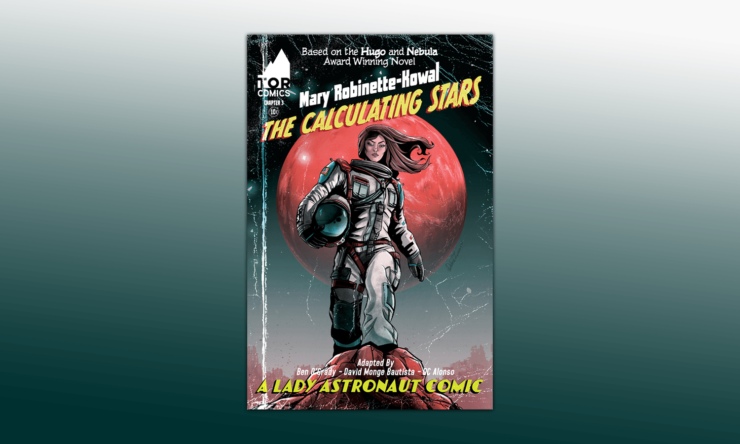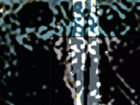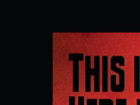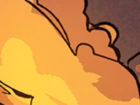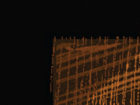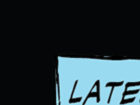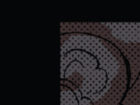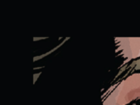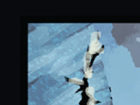On a cold spring night in 1952, a huge meteorite fell to earth and obliterated much of the east coast of the United States…
Thus begins the alternate history events of Mary Robinette Kowal’s award-winning Lady Astronaut series—in honor of the (fictional) 70th anniversary of this cataclysmic event, we’re thrilled to share comic book adaptation from indie comics writer Ben O’Grady and artists David Monge Bautista (inks), DC Alonso (color) and Rob Jones (letters).
Read their 12-page comic below, along with the full chapter from The Calculating Stars that inspired it!
On a cold spring night in 1952, a huge meteorite fell to earth and obliterated much of the east coast of the United States, including Washington D.C. The ensuing climate cataclysm will soon render the earth inhospitable for humanity, as the last such meteorite did for the dinosaurs. This looming threat calls for a radically accelerated effort to colonize space, and requires a much larger share of humanity to take part in the process.
Elma York’s experience as a WASP pilot and mathematician earns her a place in the International Aerospace Coalition’s attempts to put man on the moon, as a calculator. But with so many skilled and experienced women pilots and scientists involved with the program, it doesn’t take long before Elma begins to wonder why they can’t go into space, too.
Elma’s drive to become the first Lady Astronaut is so strong that even the most dearly held conventions of society may not stand a chance against her.
THREE
Announcer: This is the BBC World News for March 3, 1952. Here is the news and I’m Raymond Baxter. As fires continue to rage on the east coast of the United States, other countries are beginning to see the first effects of this morning’s meteorite strike. Tidal waves are reported in Morocco, Portugal, and Ireland.
As a Women Airforce Service Pilot during the Second World War, I often flew transport missions with planes that were barely airworthy. My little Cessna was more flyable than some of the planes I’d gotten off the ground as a WASP. Dusty and scuffed, yes, but after the most careful preflight check in the history of aviation, I got her airborne.
As soon as we were up, I made a left bank to turn us south toward Charleston. We both knew it was probably futile, but I had to try. As the plane swung around, what remained of my irrational hope died. The sky to the east was a long dark wall of dust and smoke, lit from beneath by an inferno. If you’ve seen forest fires, you know a little of what this was like. The current fire stretched to the curvature of the Earth, as if someone had peeled back the mantle and opened a gateway into Hell itself. Streaks of fire lit the sky as ejecta continued to fall to the Earth. Flying into that would be madness.
Everything to the east of the mountains had been flattened. The airblast had laid the trees out in weirdly neat rows. In the seat beside me, just audible over the roar of the engine, Nathaniel moaned.
I swallowed and swung the plane back around to the west. “We have about two hours of fuel. Suggestions?”
Like me, he tended to do better if he had something to focus on. When his mother died, he built a deck in our backyard, and my husband is not terribly handy with a hammer.
Nathaniel scrubbed his face and straightened. “Let’s see who’s out there?” He reached for the radio, which was still tuned to the Langley Tower. “Langley Tower, Cessna Four One Six Baker request VFR traffic advisories. Over.”
Static answered him.
“Any radio, Cessna Four One Six Baker request VFR traffic advisories. Over.”
He dialed through the entire radio frequency, listening for someone broadcasting. He repeated his call on each while I flew. “Try the UHF.” As a civilian pilot, I should have just had a VHF radio, but because Nathaniel worked with the NACA we had a UHF installed as well so he could listen directly to pilots who were on test flights. We never cluttered the military channels by broadcasting, but today…? Today I just wanted anyone to answer. As we made our way west, the devastation lessened, but only in comparison to what lay behind us. Trees and buildings had been knocked down by the blast. Some were on fire, with no one to put them out. What had it been like, to not understand what was coming?
“Unidentified Cessna, Sabre Two One, all nonessential air traffic is grounded.”
At the sound of a living human, I started to weep again, but this was not a time to indulge in compromised vision. I blinked my eyes to clear them and focused on the horizon.
“Roger, Sabre Two One, Cessna Four One Six Baker, request advice on clear landing areas. Heading two seven zero.”
“One Six Baker, copy that. I’m right above you. Where the hell are you coming from?” His voice had the telltale hiss and rattle of an oxygen mask, and behind that was the thin whine of a jet engine. Looking back and up, I could just make out the F-86, and his wingman farther back, gaining on us. They would have to circle, because their stall speed was faster than my little Cessna could fly.
“Hell seems pretty accurate.” Nathaniel rubbed his forehead with his free hand. “We were in the Poconos when the meteorite hit.”
“Jesus, One Six Baker. I just flew over that. How are you alive?”
“I’ve got no idea. So… where should we set down?”
“Give me a sec. I’ll check to see if I can escort you to Wright-Patterson.” “Roger. Would it help to mention that I’m a retired Army captain and still work with the government?”
“With the government? Please tell me you’re a senator.”
Nathaniel laughed. “No. A rocket scientist with the NACA. Nathaniel York.”
“The satellites! That’s why you sounded familiar. I heard you on the radio. Major Eugene Lindholm, at your service.” The man on the other end of the line was silent for a couple of minutes. When it crackled back to life again, he said, “Got enough fuel to reach Wright-Patterson?”
I’d flown into that airbase multiple times, moving planes during the war. It was approximately one hundred and fifty miles from where we were. I nodded as I adjusted course to head us there.
Nathaniel nodded in acknowledgment and lifted the mic again. “We do.” “Great. You’ll be there in time for dinner. Not that it’s much to look forward to.”
My stomach growled at the mention of food. We hadn’t eaten since dinner the night before, and I was suddenly ravenously hungry. Even water would be welcome.
When Nathaniel signed off, he leaned back in his seat with a sigh.
“Looks like you have a fan.”
He snorted. “We should have seen it.”
“What?”
“The meteorite. We should have seen it coming.”
“It wasn’t your job.”
“But we were looking for things that would interfere with the satellites. You’d think we’d spot a goddamn asteroid that was this close.”
“Low albedo. Trajectory that put it in line with the sun. Small—”
“We should have seen it!”
“And if you had, what could we have done?”
The sound of the engine vibrated the seat beneath me and underscored the hiss of air slicing past. One of Nathaniel’s knees bounced up and down with nervous energy. He sat forward and grabbed the charts. “Looks like you’ll need to lay a course southwest.”
I’d already done that, and we had an escort, but if giving me directions made Nathaniel feel useful, then by God he could guide me all the way there. Every streaking flare of ejecta in the sky just drove home how helpless we were. I could see them, but not in time to do anything about them, so I kept my hands on the yoke and flew.
*
The good thing about the constant pinch of hunger was that it countered the soothing drone of the airplane and kept me awake. Well, that and Nathaniel’s terrible baritone. My husband was many things, but a singer was not one of them. Oh, he could carry a tune—in a bucket filled with gravel.
Fortunately, he knew that, and leaned toward a comedic repertoire in his efforts to keep me awake. Bellowing with a vibrato like an amorous goat, Nathaniel stomped his foot on the floorboards of the airplane.
“Oh, do you remember Grandma’s Lye Soap?
Good for everything, everything in the place.
The pots and kettles, and for your hands, and for your face?”
Below us, the glorious sight of the Wright-Patterson airfield finally scrolled into view. Its identification light flashed green, then the double-white of a military field.
“Mrs. O’Malley, down in the valley
Suffered from ulcers, I understand—”
“Saved!” I adjusted altitude. “Let ’em know we’re coming in?”
Nathaniel grinned and grabbed the mic. “Sabre Two One, One Six Baker. So how’s the food on the base?”
The radio crackled and Major Lindholm laughed. “It’s everything you would expect. And more.”
“That bad, eh?”
“I did not say that, sir. But if you’re real nice, I might share my wife’s care package.”
I laughed along with Nathaniel, far more than the joke deserved.
Nathaniel switched the radio to the tower frequency, but before he could get the mic to his lips, another voice crackled out. “Aircraft on heading two six zero, eight thousand five hundred feet, this is Wright-Patterson Tower. Identify yourself.”
“Wright-Patterson Tower, this is Cessna Four One Six Baker at eight thousand five hundred, direct to the field.” Nathaniel had flown with me often enough that he had the routine down. He lowered the mic for a moment, then grinned and raised it again. “And Tower, we have Sabre Two One flight in tow.”
“Tower, Sabre Two One. We are escorting One Six Baker, request direct to the field.”
I snorted. It had to irk a fighter pilot to be trailing a scrubby little plane like my Cessna.
“One Six Baker and Sabre Two One, Tower copies. Approved direct to the field. Remain clear of One Six Baker. Be advised, we have reports of—”
Light streaked past the nose of the plane. A crack like a bomb going off. The entire plane bucked. I wrestled it level again—
And suddenly, I could see the propeller. The nearly invisible blur had become a stuttering, uneven bar. Part of it was just gone. It took me a moment to grasp what had happened. That streak of light had been a chunk of ejecta slamming into the nose of the plane, and it had taken part of my propeller with it.
The engine vibrations shook the yoke in my hand and slammed the seat against the base of my spine. This was only going to get worse. It could shake the engine right out of the plane. I slammed it into idle and began the sequence to secure the engine—by which I mean, shut it down.
Damn it. I wasn’t going to make the base. “I need a landing field. Now.”
At least we were in farm country, although the snow was going to mask the actual terrain. I pulled the throttle knob all the way out to idle and the engine shut off, leaving only the hiss of wind around us. What was left of the propeller windmilled as air rushed over it.
“What… ?”
“Gliding.” If the ejecta had hit a wing, we’d be in much worse trouble, but the Cessna was a darn good glider. I just wouldn’t get a second chance at landing.
There was a road cutting between the fields, which might be a good bet, if it weren’t for the fences bordering it. Field it was. I banked to line up the approach.
In the corner of my eye, Nathaniel still clutched the microphone. As a WASP, I’d had engines cut out on me far too often. This was his first time. He brought the radio to his mouth and I was so proud of how steady his voice was. “Wright Tower, this is Cessna Four One Six Baker declaring an emergency. We’ve had an engine failure and are making a forced landing on a field… um…” He fumbled for the map.
“Cessna Four One Six Baker, Wright Tower. We have eyes on you. You just concentrate on landing. Sabre Two One, Wright Tower. Orbit to assist and pinpoint where they land.”
“Wright Tower, Sabre Two One. Already on it.” The roar of the jet passed overhead as Major Lindholm and his wingman did a wide sweep past us.
My pulse thrummed through my veins, taking the place of the engine noise. This was not my first unpowered landing, but it was the first time with my husband aboard. After everything else that had happened today, I would not be the cause of his death. I refused. “Buckled up?”
“Um. Yeah.” But he was fastening his seat belt as he spoke, so it was a good thing that I had asked. “Can I do… anything?”
“Brace.” I tucked in my chin and watched the altimeter.
“Anything else—”
“Don’t talk.” He just wanted to help, but I didn’t have time for that. I had to slow the plane down as much as possible before I touched down, but not so much that we landed short of the field. The ground rose up to meet us, changing from a smooth white expanse to a model train set of a snowy field, and then—without transition—full size and beneath us. I kept the nose up so that the tail wheel touched down first.
The snow grabbed at the wheel, slowing us further. As long as I could, I kept the nose tipped up. When the wing wheels finally touched, one of them snagged on the uneven rows beneath the snow. The plane jolted. I clutched the yoke to keep the wings level and worked the rudder pedals, trying to turn in the direction of the wind.
Our turn continued until we were facing the direction that we’d come. The plane stopped. Around us, the world was silent and still.
All the air in my lungs hissed out at once. I sagged against the seat.
A jet engine roared overhead and the radio crackled. Major Lindholm’s voice filled the cabin. “One Six Baker, nicely done! Are you two okay?”
Nathaniel sat up and reached for the mic. His hand was shaking. “We aren’t dead. So, yes.”
*
The congealed mass of kidney beans and utterly questionble meatloaf may have been the best things I had ever tasted. The beans had a sweet tang to them, and puckered the inside of my mouth with too much salt, but I closed my eyes and relaxed against the hard bench in the Air Force canteen. It was weirdly empty, since much of the base had been deployed to deal with relief efforts. Some crockery rattled against the table and brought with it the glorious scent of chocolate.
When I opened my eyes, Major Lindholm settled onto the bench across from us. The picture I’d built of him in my head had no bearing on reality. I’d expected an older man, Nordic blond and stocky.
The real Major Lindholm was black, and younger than I’d expected from his voice. He was a hale man in his late thirties, with dark hair still mashed down from his helmet. The red line of his face mask traced a triangle around his chin and nose. And he brought hot chocolate.
Nathaniel lowered his fork and eyed the three steaming mugs on the table. He swallowed. “Is that hot cocoa?”
“Yeah, but don’t thank me. It’s a bribe, so I can ask you questions about rockets.” Lindholm pushed two of the mugs across the table. “From the stash my wife sends to work with me, not the Air Force stuff.”
“If you weren’t already married…” My hand had closed around the warm mug before I realized what I’d said. I hoped he wasn’t offended.
He laughed, thank God. “I’ve got a brother…”
My heart clenched hard. I’d managed to put my family out of my mind in order to keep going, but my brother lived in California. Hershel must think I was dead. My breath shuddered as I inhaled, but I managed to find a smile somewhere and looked up. “Is there a phone I can use? Long distance?”
Nathaniel rested his palm against my back. “Her family was in D.C.”
“Oh, geez, ma’am. I’m so sorry.”
“But my brother—he’s in California.”
“You come with me, ma’am.” He glanced at Nathaniel. “Is there anyone you need to call, sir?”
Nathaniel shook his head. “Not urgently.”
I followed Major Lindholm, with Nathaniel at my back, through corridors that barely registered. What an inconsiderate brat I’d been. I’d taken comfort that Hershel and his family lived in California, but hadn’t once thought about the fact that to him, I was as good as dead. He had no reason to think that I wasn’t in D.C. when the meteorite struck.
The office Major Lindholm showed me to was small and military tidy. The only thing that marred the right angles was a framed photo of twin boys and a crayon-drawn map of the U.S. pinned to the wall. Nathaniel shut the door and stood outside with Lindholm.
A utilitarian black phone sat on the desk, but at least it had a rotary dial, so I wouldn’t have to speak with an operator. The receiver was warm and heavy. I dialed Hershel’s home, listening to the rattle of the rotary as it swept through the numbers. Each signal sent a pulse through the lines and gave me time to retreat into a mechanical calm.
All I got was the high, frantic hum of a busy circuit. It was hardly surprising that all the circuits would be busy, but I hung up and tried again immediately. My urgency beat in time with the busy signal.
I had barely hung up again when Nathaniel opened the door. “Company. You okay?”
“Circuit’s busy.” I wiped at my face, probably just smearing the dirt more. I would ask to send a telegram, but the military signalers would be tied up. “I’ll try later.”
There was a lot to be said for being alive and upright. I was a greasy, smoky, bleeding mess, but I was alive. My husband was alive. My brother and his family were alive. And if I needed a reminder that this was a blessing, all I had to do was remember how many people had died today.
Still, when an Air Force colonel strode into the room, I caught myself trying to brush my hair into place as I stood, as if it would make a difference. Then, I saw past the insignia to the man. Stetson Parker. Thank heavens I had enough dirt on my face that I didn’t have to worry about guarding my expression.
The jerk had been promoted. This was not remotely surprising, since he was a charmer to anyone who outranked him, or who he needed… as he proceeded to demonstrate now, with an outstretched hand toward Nathaniel. “Dr. York. I can’t tell you what a relief it is to know you’re safe.”
Even with Lindholm’s earlier enthusiasm about rockets, it was easy to forget that Nathaniel had become a celebrity because of the satellite launch. We’d managed to beat the Russians to getting a satellite into orbit not once, but with three different launches. My husband, being unreasonbly attractive and charming—a fact about which I am not biased—had become the face of the NACA space program.
“Well, Major Lindholm has been taking good care of us. We appreciate the welcome, Colonel… ?” The man had a name tag on, but still… an introduction was appropriate.
“Where are my manners? I’m just so awestruck to have you here.” Parker gave a shit-eating grin. “Colonel Stetson Parker, Base Commander. Although… with affairs being what they are, I appear to be in charge of more than just this base.”
Of course he would get that in, to make it clear how important he was. I stepped forward and stuck out my hand. “Good to see you again, Colonel Parker.”
He raised his eyebrows in surprise. “I’m sorry, ma’am, you have the better of me.”
“Oh, when you knew me, I was still Elma Wexler. One of the WASP pilots.”
His face stiffened a little. “Ah. The general’s daughter. Yes, I remember you.”
“Congratulations on your promotion.” I smiled the best “bless your heart” smile I could. “You must have worked very hard for it.”
“Thank you, ma’am.” He grinned again, clapping Nathaniel on the shoulder. “And I guess the little lady got a promotion, eh, becoming Mrs. York?”
My teeth hurt from grinding, but I kept smiling. “You mentioned not knowing who your superior is. What can you tell us about the current situation?”
“Ah…” He sobered, and the mood change might even have been real. He gestured to the seats on the other side of the desk. “Sit down, please.”
Parker took the chair behind the desk, and only now did I notice his nameplate set front and center. I was surprised he had twins. I wonder who’d married him. He steepled his fingers together and sighed again. “An explosion—”
“A meteorite.”
“That’s what the news reported. But given that Washington was wiped out? I place my money on the Russians.”
Nathaniel cocked his head. “Is there radioactivity?”
“We haven’t gotten anyone close enough to the blast area to check.”
Idiot. I spelled things out for him. “There’s ejecta falling all around, which, first of all, you could just test for radioactivity. Second, that’s not something that happens with an A-bomb. It occurs when a meteorite punches a hole in the atmosphere and the blast material is sucked into space, then falls back to Earth.”
His eyes narrowed. “Then know this. The United States Congress was in session, both the House and the Senate. Our federal government was nearly entirely wiped out. The Pentagon, Langley… So even if this was an act of God, do you honestly think the Russians won’t try to take advantage of it?”
That… that was a terrifyingly good point. I leaned back in my chair and crossed my arms over my chest to ward off the sudden chill in the air.
Nathaniel filled in the gap. “So, the military is planning a defense?”
He didn’t quite emphasize “military,” but did make it clear enough that whatever happened, a colonel was not going to be running the show.
“It’s the prudent thing to do. Dr. York…” He paused, but the hesitation was so blatantly calculated that you could almost see him counting the seconds. “You worked on the Manhattan Project, am I correct?”
Nathaniel stiffened next to me. The Manhattan Project had been exciting from a scientific standpoint, but horrific in every other respect. “I did, but I’m focused on space exploration these days.”
Parker waved that away. “I hate to do this to you after your arduous morning, but may I pull you into a meeting?”
“I’m not sure that I really have anything to offer.”
“You’re the top scientist in rocketry right now.”
Neither of us needed a reminder of how many people at the NACA were likely dead. I rested my hand on Nathaniel’s knee, to steady him as he had steadied me. The NACA, however, was not the only rocketry program. “Not to undervalue my husband’s work, but Wernher von Braun is at the Sunflower Project in Kansas.”
Parker snorted and gave me a pained smile. He’d hated being polite to me during the war, when he had to because of my father; and now he hated being polite to Dr. York’s wife. “Ma’am, it’s nice that you want to help, but I hope you understand that I can’t involve a former Nazi like von Braun in questions of national security.” And then he was looking at Nathaniel again, ignoring me completely. “What do you say, Dr. York? We just want to understand what our options are for keeping America safe.”
Nathaniel sighed and picked at a loose thread on his trousers. “All right. But I’m not promising to be bright today.”
As he stood, I straightened my legs to join him. Parker held his hand up and shook his head. “No need, ma’am. You can just rest here in my office, while Major Lindholm arranges quarters for you.”
The major said, “We have some empty rooms at our place—if you want to avoid the TLFs?”
I was flattered—not that he’d offered a place to stay, but that he used the acronym for temporary living facilities instead of translating for a civilian. “That’s very kind. If your wife doesn’t mind, Major.”
“I’m sure she won’t, ma’am.”
Parker’s smile was unexpectedly warm. “You’re in good hands. His wife makes darn fine pie.”
I’ll admit that I was surprised to see what appeared to be genuine camaraderie between the two men. My own experiences with Parker had been less than ideal. I hoped that didn’t mean that Major Lindholm would turn out to be charming but unpleasant too. “Thank you. Now that that’s sorted, we can go on to the meeting.” Not that I had any desire to go to a meeting, but I would give a lot to feel like I could be of some use.
“Ah… I’m sorry, ma’am.” Parker tugged at his tie. “What I should have said was that Dr. York already has the necessary clearance levels from the Manhattan Project. You understand.”
Clearance, my ass. From what he was saying, there was no hierarchy at all, much less clearance. But if I voiced any of that, nothing useful would follow, so I settled back in my chair. “Well, bless your heart. Of course I understand. I’ll just sit here and wait.”
Nathaniel raised his brows at that. He knew me well enough to know I was good and angry, if not exactly why. I shook my head at him, reassuring him that I was fine. I smiled, folded my hands demurely in my lap, and settled back. Like a good little girl, I would sit and wait, let my husband do the work, and pray to God that this mishegas wasn’t going to start a nuclear war.
Excerpted from The Calculating Stars, copyright © 2018 by Mary Robinette Kowal
Buy the Book


The Calculating Stars










